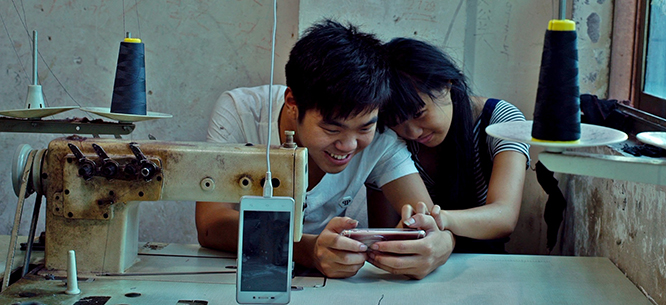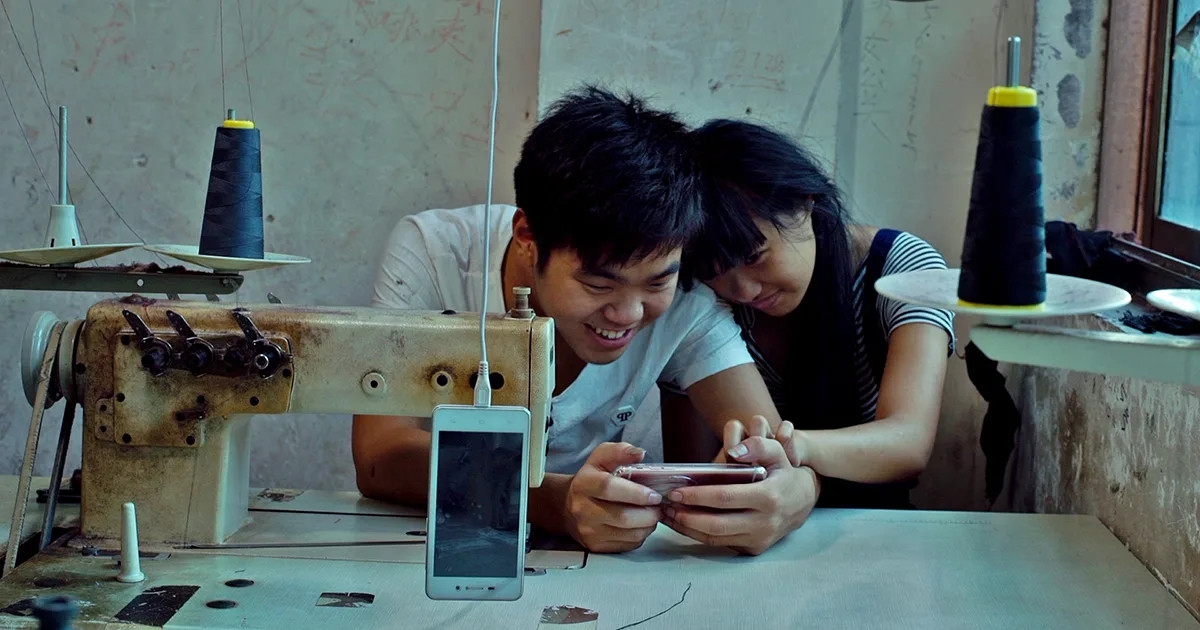Solace and Solidarity on the Factory Floor
Wang Bing’s Youth is an epic work of people’s history writ small.

Early in Wang Bing’s 2023–24 documentary series, Youth, a brawl breaks out between two young factory workers. What starts as sophomoric workplace clowning, a distraction from the rigor of labor, ends up close to blows. Held back by an older relative, one worker threatens to report the instigators to factory management. “I’ll make you disappear—you’ll be history!” he shouts. The outburst is one of several of the film’s spontaneous invocations of history. For the Chinese director, the past is a compass rose—one by which he has navigated local and global themes.
Filmed over five years in Zhili, a factory district in Huzhou, Zhejiang Province, Youth is an extraordinary, patient work. At nearly ten hours across three chapters, it reaffirms the slow-focused subjectivity that gave Wang a name and place at global industry locales like Cannes and the Venice Biennale. Each film—Spring, Hard Times, and Homecoming—is part of a triptych composed of shorter sequences where Wang follows individual or small groups of textile workers as they live and labor in peri-urban China. The workshops themselves appear stripped of personality, outfitted only with basic necessities and bare walls; it is the personalities of the workers that remain in high relief. Just as evocative are scenes in which the dialogue drops and the labor does the talking through the staccato thrums of sewing machines.
At its most vibrant, the cycle’s first installment Spring conjures a kind of realer-than-real reality TV seemingly cut off from—to paraphrase Jean-Luc Godard—the political act of editing. Wang’s camera captures extended shifts woven with intimate moments. Many of the workers are barely out of secondary school and their lives are closely supervised by their elders. In one scene, the bosses and a worker’s parents discuss their daughter’s possible pregnancy as she sits quietly; later she is pressured to have an abortion. Drab factory scenes are punctuated with fleeting moments of leisure outside the workplace: as Wang films his subjects goofing off on their phones, taking naps at internet cafes, or flirting listlessly, they remain apparently unbothered by the gaze of the camera, which merges, for a moment, with the watchful tech of the party-state.
Wang’s work had been, until recently, largely ignored by China’s authorities in spite of his coverage of politically sensitive topics; his 2010 film The Ditch notably puts a lens to Mao’s labor camps. With Youth, however, Wang has become another object in the crosshairs of the state censorship apparatus. This may have as much to do with geopolitics as with the work itself. As fear of China’s global supremacy has become a bipartisan obsession in Washington, the Communist Party has come to see Wang’s work through the eyes of a Western audience eager for dissident voices. Chinese social media services and w...
Online OnlyFor just $19.95 a year, get access to new issues and decades' worth of archives on our site. |
Print + OnlineFor $35 a year, get new issues delivered to your door and access to our full online archives. |
